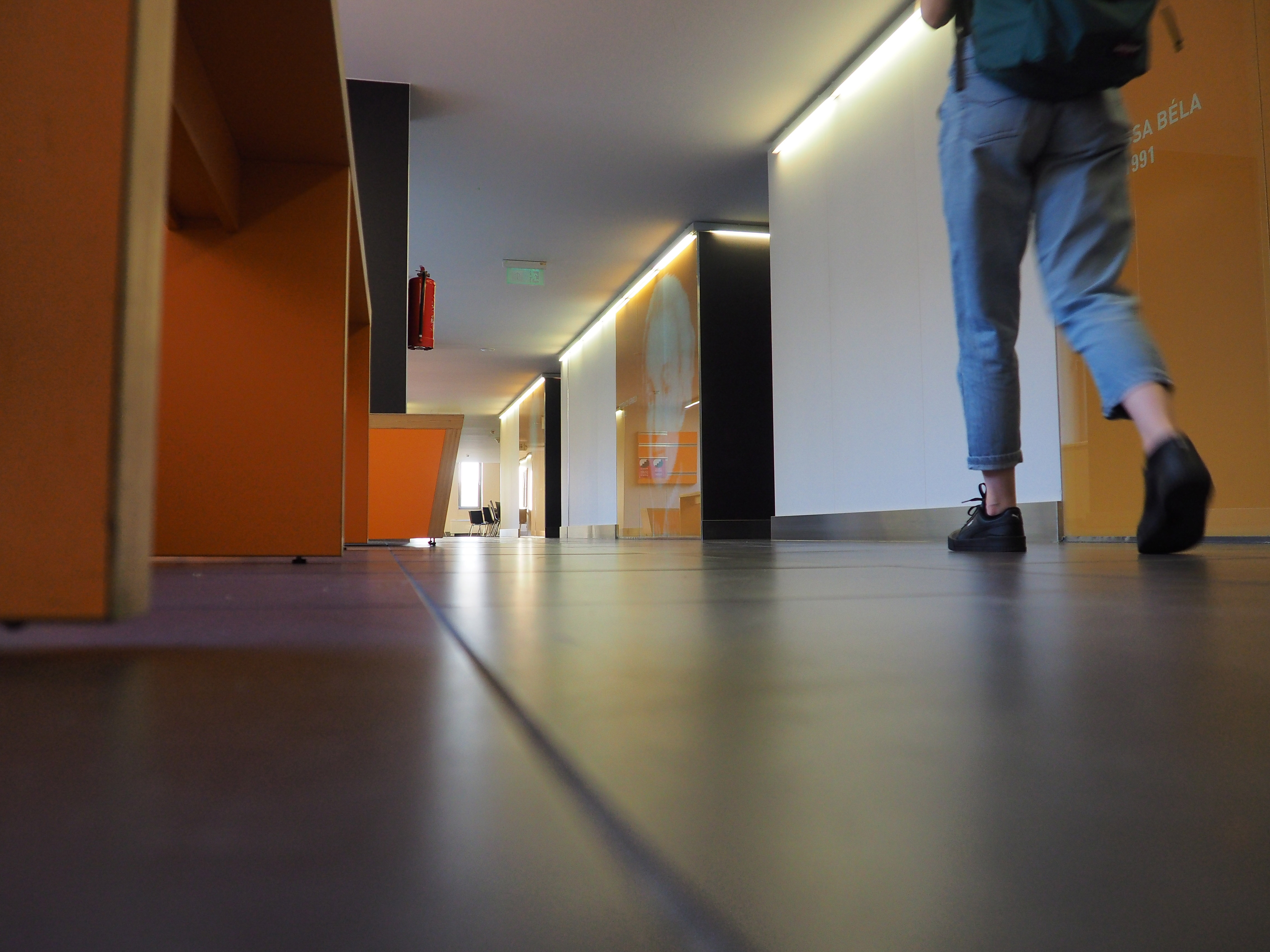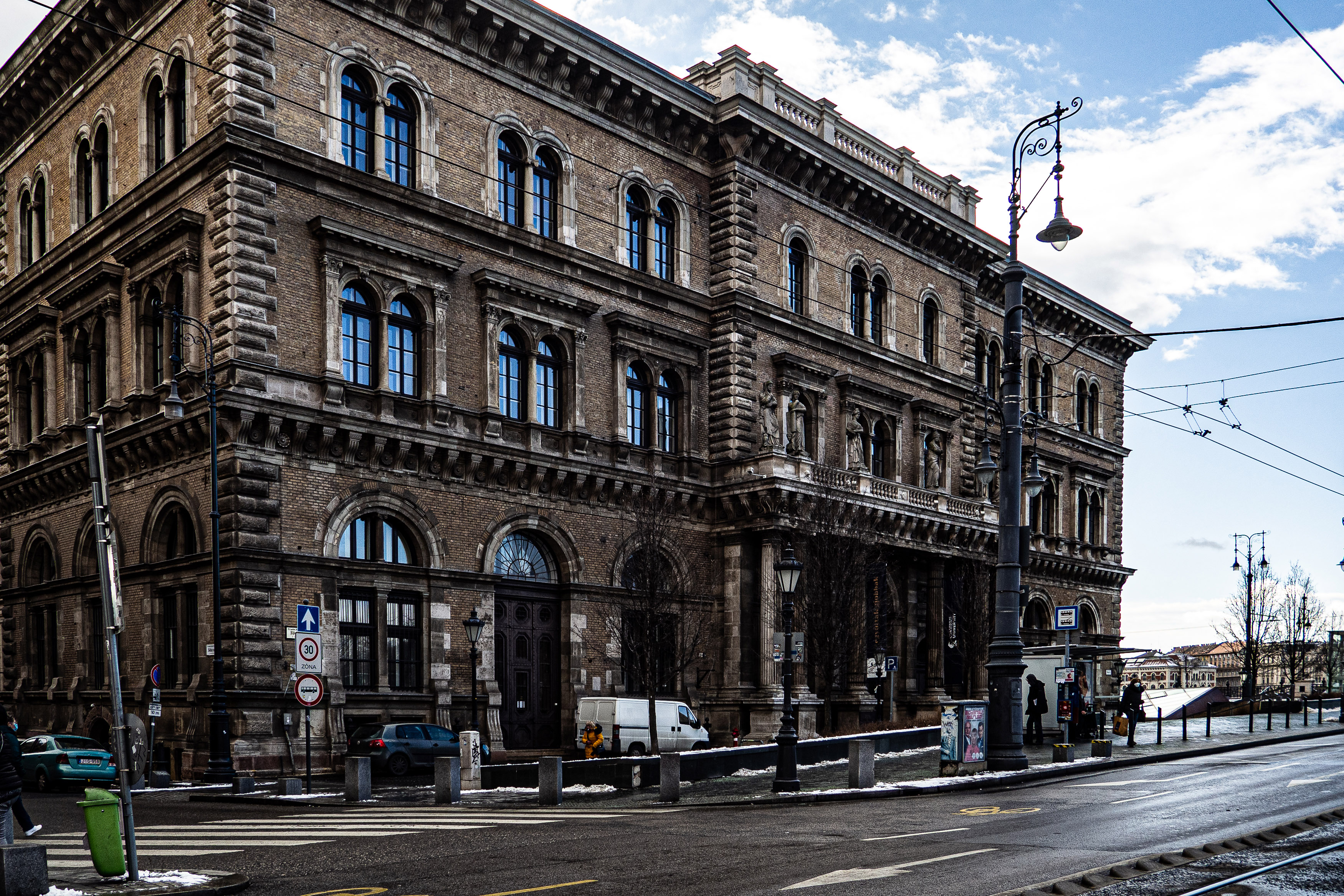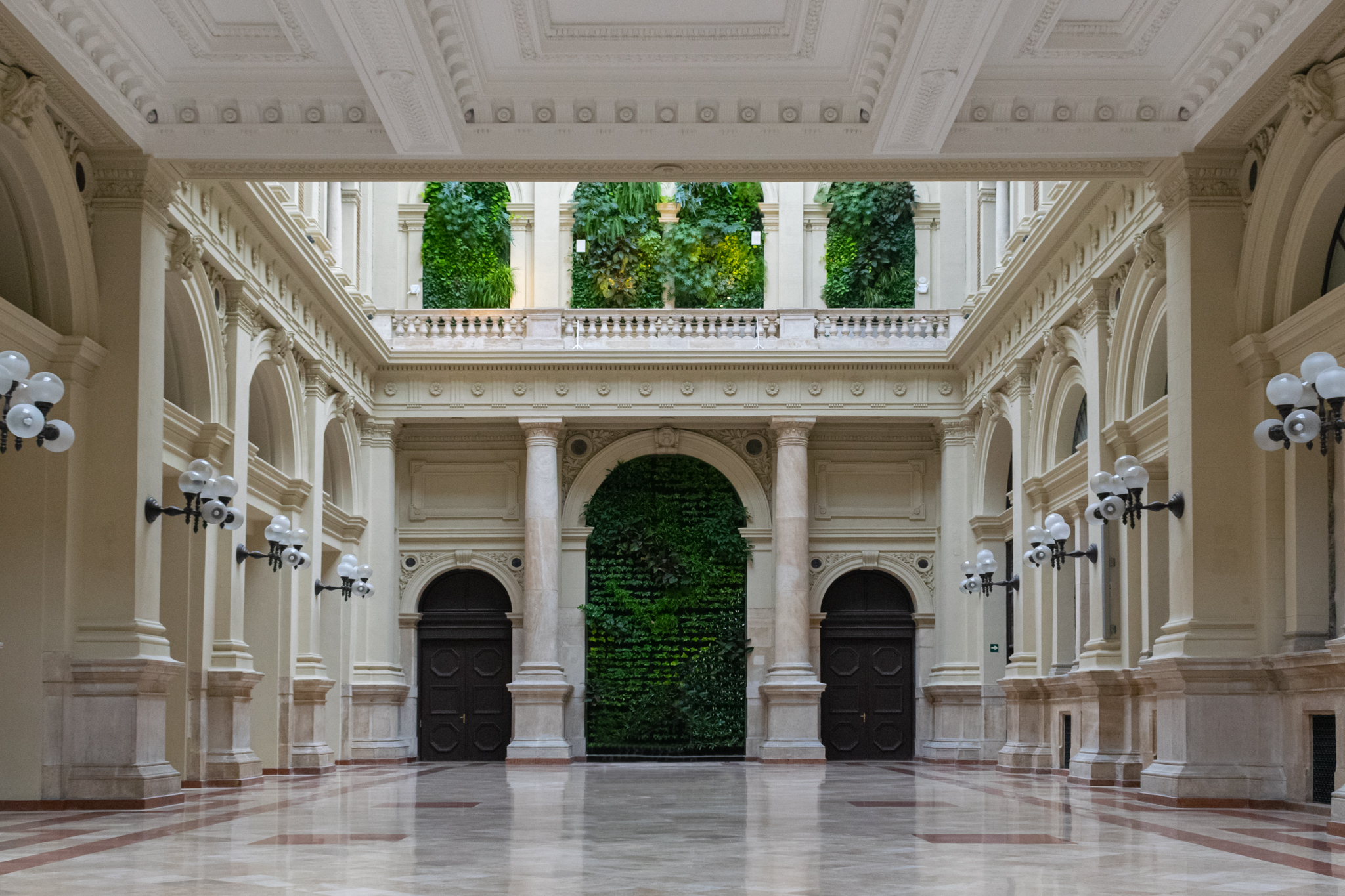Subjects
Bachelor subjects
Master’s subjects
The Decision Techniques “Good Practice Award” ceremony was once again held at Corvinus University of Budapest, where students were recognized for their impactful, stakeholder-inclusive, and creative initiatives.
The purpose of the “Good Practice Award” is to acknowledge the best student initiatives carried out within the Decision Techniques course and to encourage social, sustainability-focused, and community-driven projects. Teams eligible for the award were those that applied decision-making techniques acquired during the course to create value-driven projects.
The applications were evaluated based on several criteria, including impact, creativity, community involvement, and learning process.
- Impact – The extent to which the project brought about real social, community, or environmental change in relation to the problem.
- Creative Execution – How unique, innovative, and inspiring the approach to the problem was.
- Community Involvement – The extent to which stakeholders and communities were actively engaged.
- Learning Process – The experiences gained, lessons learnt by the group and their development throughout the project.
Awarded Projects
- Exercise (Good Practice Award)

- Action: Organizing community runs around the university to encourage student participation in physical activities. Evaluation: The team identified a relevant problem, as lack of regular exercise affects many students. They implemented a simple yet effective solution requiring minimal resources while remaining motivational. The evaluators highlighted the engagement of a small community and the personal development experience gained by the team members. Team Members: Fischer András, Halmosi Péter, Juga Márton, Mesits Maxim, Sipos Dorka, Zsengellér Dániel Seminar Leader: Szathmári Attila
- KOM Team (Good Practice Award)
- Action: Creating an Instagram page to help students explore study abroad opportunities. Evaluation: The team identified a current and relevant issue affecting many students. They developed an innovative, creative, and well-thought-out communication solution that is easily accessible to the target audience. Their personal involvement enhanced credibility, and by leveraging existing resources (e.g., personal connections), they created an effective and sustainable project. Team Members: Nagy Kincső, Kőrössy Eszter Piros, Lukács Annamária, Kalmár Panni, Horváth Emma, Fanici Jázmin Sarolta Seminar Leader: Munkácsi Adrienn
- Social System (Good Practice Award)

- Action: Developing critical thinking skills through a debate session organized for high school students. Evaluation: The project focused on an important and often undervalued skill – critical thinking. The team chose a relevant and engaging format for the target audience, creating an innovative and interactive learning experience beyond traditional educational frameworks. They collaborated effectively with the school and class utilizing a partnership approach. Team Members: Csekovszky Mór, Hargitai Soma, Francsik Péter, Légrádi Gergely, Molnár Dániel, Kondé Levente Seminar Leader: Szathmári Attila
- sOLDiers (Best Practice Award)
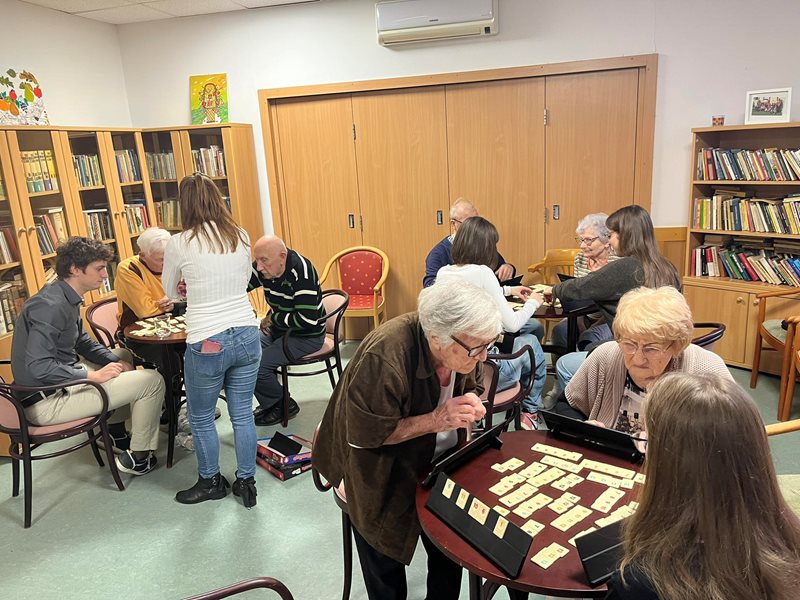
- Action: Organizing a board game afternoon at a retirement home to enrich the social lives of the elderly. Evaluation: The topic choice was empathetic and sensitive, addressing the real social issue of loneliness among the elderly. Strong personal motivation contributed to the project’s commitment and success. Collaboration with the retirement home fostered valuable human connections, potentially leading to a long-term impact. Team Members: Andor Viktória Éva, Fónai Karolina Fanni, Horváth Álmos István, Horváth Zoé, Musek Annaliza Seminar Leaders: Kiss Julianna, Krátki Noémi
- Lélektér (Best Practice Award)
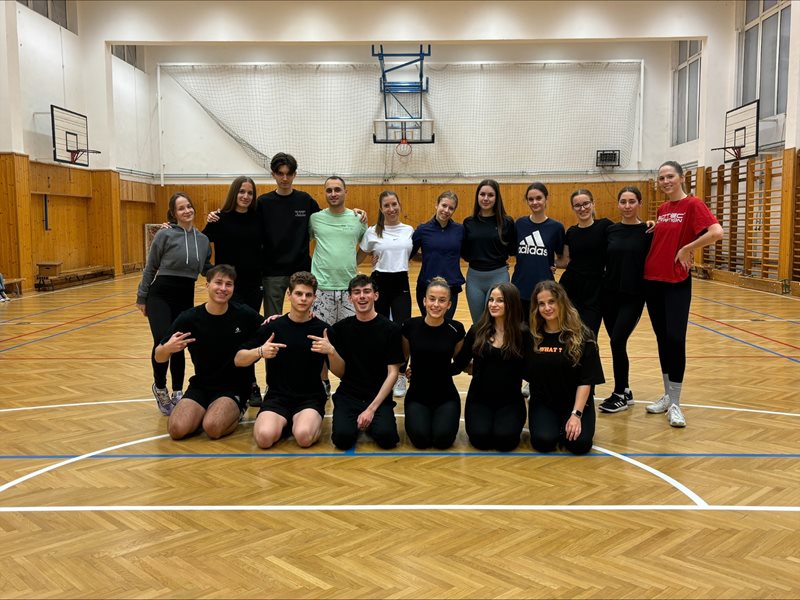
- Action: Organizing an event combining sports activities (dance and yoga) with a psychologist-led discussion aiming at conscious stress-management of students. Evaluation: The team applied a comprehensive approach, integrating theoretical knowledge transfer with practical experiences. They leveraged their own resources (e.g., dance, yoga) to create a unique program. Creative communication elements helped them reach a wide audience, resulting in positive attitude changes and significant learning experiences. Team Members: Biró Leona Éva, Butor Anna, Verbovszky Milán Dávid, Szabó-Nagy Milán, Komlós Barnabás, Jászonyi Júlia Ilona Seminar Leaders: Kiss Julianna, Krátki Noémi
- Smiley (Best Practice Award)
Next Steps
The winning teams will have their projects showcased through the university’s official communication channels to reach a broader audience.
The event was not just a celebration of achievements but also an inspiration for students to use their creativity and decision-making skills to address social and sustainability challenges.
Congratulations to all the award recipients!
Student projects on solidarity, sustainability and mental health were awarded
Emergency call simulation, a campaign about the issue of domestic violence, promotion of healthy diets, self-defence training for women and a programme in a children’s home were among the student projects awarded in the Hungarian language Döntési technikák and the English language Decision techniques courses.
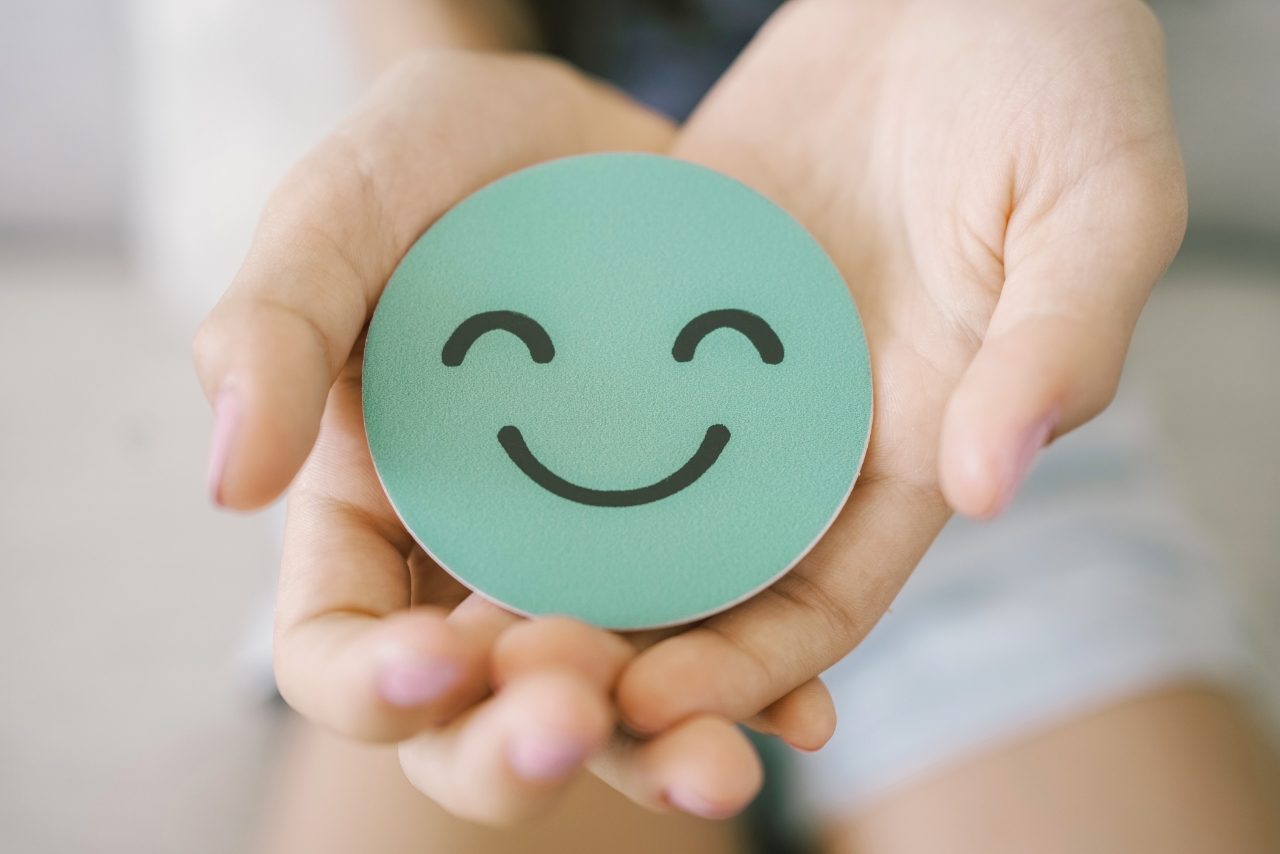
Students’ projects on social solidarity, sustainability and mental health were awarded by the lecturers of the Decision techniques course. During the course, the students carried out collective actions in groups of 5-6 members on a topic of their choice, so that they could apply the theoretical knowledge of the course in practice and reflect on the lessons learned from the practical implementation.
The aim of the competition was to showcase actions that could be considered good practices, to raise awareness of the actions and to share experiences in order to create a tradition. The evaluation criteria were the social and environmental impact achieved, creative implementation, community building, stakeholder involvement and the learning process of the group.
In the end, the jury awarded three good practices and two best practices. These included an emergency call simulation workshop, an Instagram project raising awareness on the issue of domestic violence, a workshop promoting healthy eating, self-defence training to ensure women’s physical and mental well-being and a full-day programme for children in a children’s home.
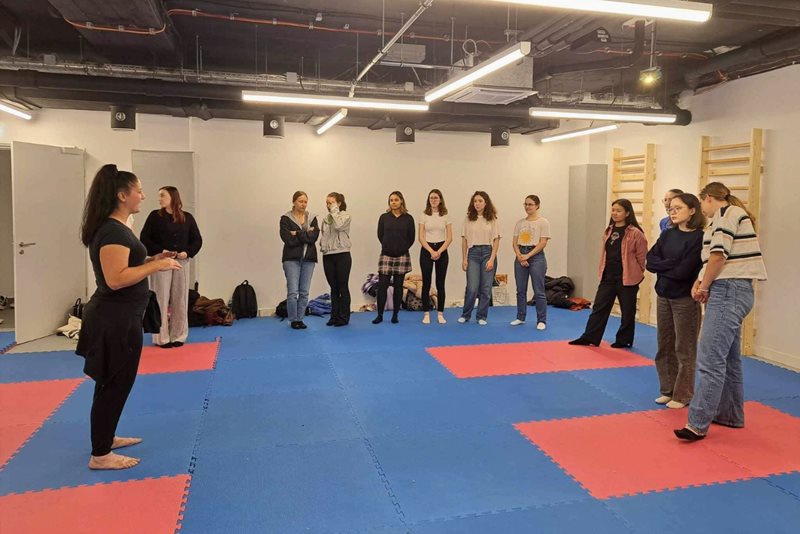
The Women’s Safety team organised a workshop with a psychologist and self-defence expert to ensure women’s physical and mental well-being. The programme, attended by 20 participants, also covered forms of violence against women, the role of inequality and strategies to combat violence. Ferencváros Family Support Services, who actively help victims of violence in their everyday lives, were also involved as community partners.
The team was awarded the “best practice” title for its focus on a sensitive topic that is still considered taboo or misunderstood. The jury highlighted that the creative, multi-faceted approach, which included both theoretical and practical elements, provided an opportunity to develop a sense of community among the participants and to engage them physically, mentally and emotionally.
Members of the team: Serena Canka, Lilla Kovács, Anna Norina Steltzer, Veronika Léránt, Thuy Duong Le, Kelenee Tisza Fizli
Course leader: Attila Szathmári
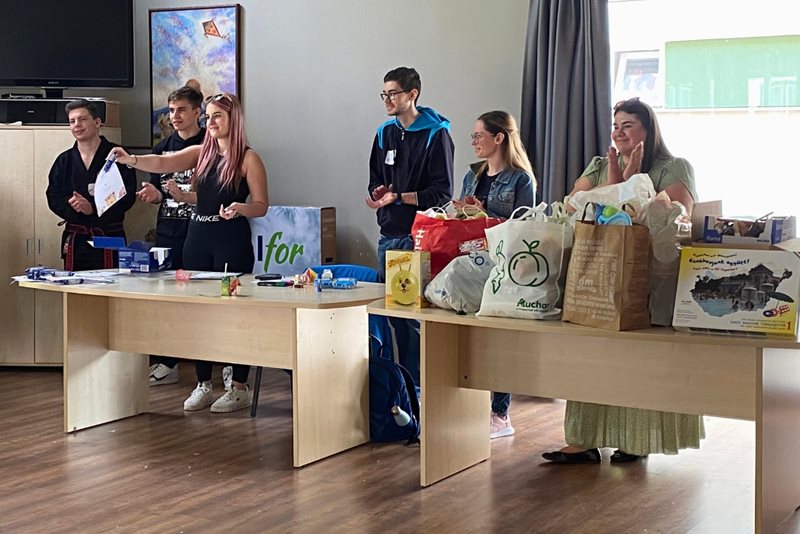
The “Gyermekmosoly” team also won a best practice award. The team members, who study in the Székesfehárvár Campus, visited a local children’s home, where a partnership between the institution and Corvinus has been running for two years. The aim of the project is to improve the environment by providing children with a session of fun activities and also fundraising for the home. The children were taken through an obstacle course where they could get a stamp in their passports for completing the tasks. And at the end of the day, there was a present for everyone.
The jury’s explanation was that the students had reached a disadvantaged target group with little attention, and that they had done so after thoughtful preparation based on expert advice. Creative, playful activities were organised that took into account the real needs of the target group, and the continuation of the previous action will also allow for a longer-term, significant social impact for the future students of the course.
Members of the team: Petra Felden, Vivien László, Dorina Vig, Márk Friedrich, László Kellner, Bendegúz Vágó
Course leader: Noémi Krátki
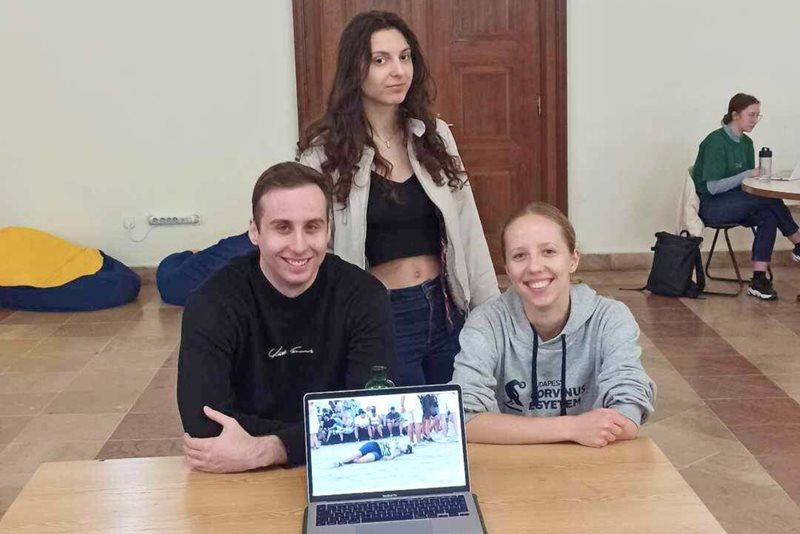
The “Késelés” Team’s action drew attention to the bystander effect, which is the idea that the more people could help a person in need in a crisis situation, the less likely it is that someone will help them. The team members therefore organised a workshop where they ran an emergency call simulation. Of course, the participating students did not dial the real emergency number, but a member of the project sat at the other end of the line. They asked the questions that dispatchers would ask in a real crisis situation. This gave the participants a chance to practise calling for help, so that they would be better prepared to deal with the situation if they really needed it later.
The jury commented on the project that it was a topic that had received little attention and that the students had prepared thoughtfully and sensitively. It was a brave undertaking because of its potential for high involvement, but the creative and innovative way in which it was carried out helped the students to achieve a successful project.
Members of the team: Gréta Hajdu, Krisztián Kápolnai, Eszter Éva Kovács, Ábel Izrael Makrai, Edvin Somogyvári, Zalán Vezér
Course leader: Attila Szathmári
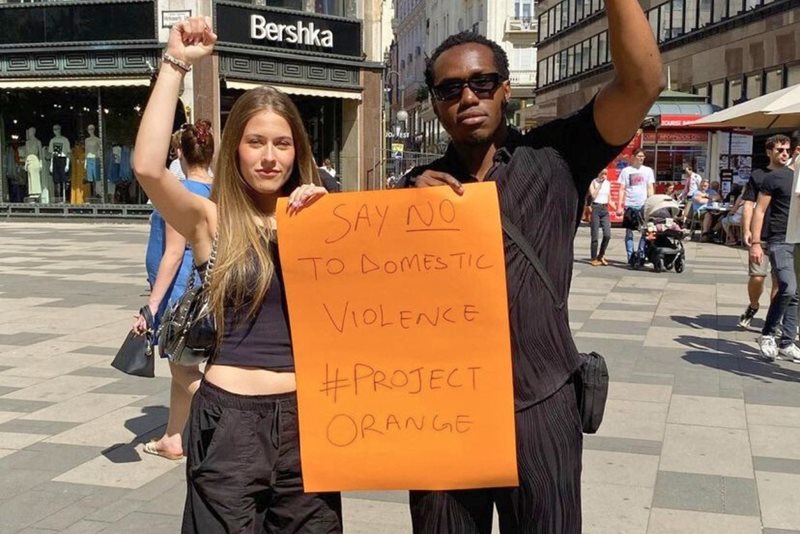
The Project Orange team has raised awareness about the issue of domestic violence through an Instagram campaign. They also organised a face-to-face campaign where they talked to bystanders about the topic, who were able to join the online initiative. The impact of the campaign was demonstrated by the fact that they were subsequently contacted by a victim, and a representative of an NGO with expertise in the field also shared relevant information about the topic with them.
The professional jury highlighted the careful and cautious communication of the sensitive issue and the thousands of views reached on the online platform. It was also good practice to involve influencers, stakeholders, experts and to channel their opinions into the process, and to be flexible during the implementation and incorporate new activities – online and offline.
Members of the team: Michael Ejiofor Junior Eneh, Elina Kanybekova, Sina Ernst, Gong Shu Xin, Ning Ke, Qiu Feng
Course leader: Julianna Kiss
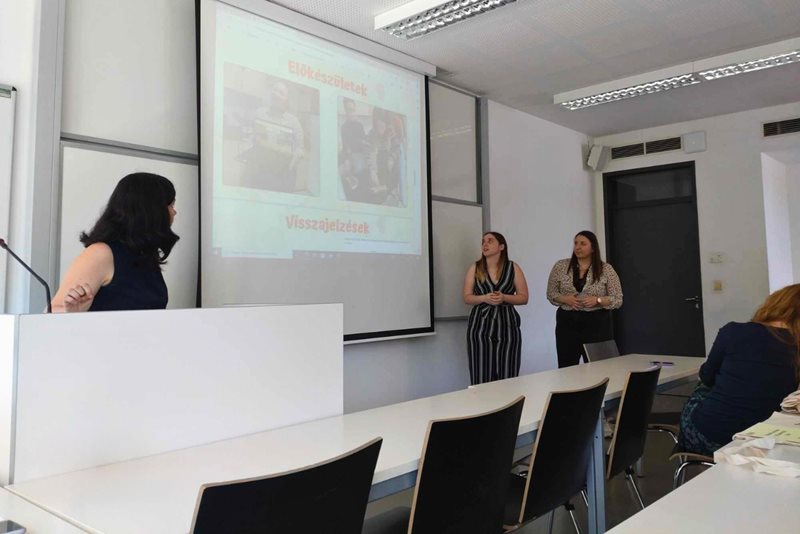
The CsipetCsapat project was about healthy eating, and the students organised a workshop on the topic at Heller Farkas College. The aim was to inform and share their own experiences, with the help of an expert. And by preparing food together, they also wanted to raise awareness of the fact that good quality, healthy food can have an impact on academic performance in addition to a healthy lifestyle.
“This important objective for the target group was achieved through an inspiring activity of shared cooking, and the impact on the participants was significant,” the jury pointed out. And the linking of the students in a professional college resulted in community building, which was also an advantage in the selection process. Another positive aspect was that expert opinions and interviews were incorporated during the implementation.
Members of the team: Alexander Török, Anna Kádas, Borbála Tóth, Csaba Tőke Danone, Kristóf Józsa, Dalma Nagy
Course leader: Attila Szathmári
These stories show that a student project can have a real social impact beyond learning. And the immediate practical application of the methods learnt in theory deepens the learning and inspires students to participate more consciously and, hopefully, to become more socially responsible in the future.
More information about the course and the lecturers can be found here: https://www.uni-corvinus.hu/main-page/about-the-university/departments/department-of-decision-sciences/?lang=en
